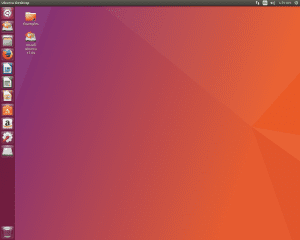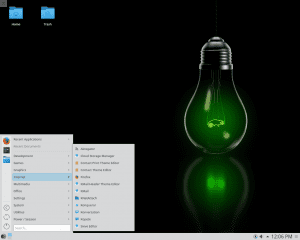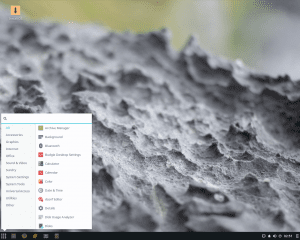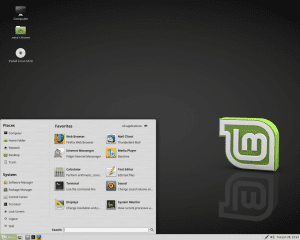
If you are reading these lines now on a computer, there are great chances that you are using Microsoft Windows operating system. In fact, 90% of all desktop computer users around the world use the same system. But are there alternatives? Is it better?
Linux is a free and open source operating system. When we say “open source”, this means that anyone can see the source code of the operating system, as you know, programmers first write the source code using one of the programming languages and then the computer converts it to an executable format (0 and 1) so that we can run it on Our computers. But by default, we don't get that source code, only the executables. It is with Windows. In Linux, the source code is completely free of charge.
Because of this, and due to its unique infrastructure, Linux has a high level of protection compared to Microsoft Windows. Almost all giant companies such as Google, Facebook, Twitter and others use Linux on its servers because it is safer and more convenient for them. In addition to many other features.
Fortunately, Linux is not just a server operating system, not just a black screen! There are even hundreds of "distributions" of it intended for ordinary users like you and me. The distribution is simply a version of the operating system, such as Windows XP and Vista, 7 and 10. However, in Linux, there is not a single manufacturer of distributions, but anyone can make their own distribution and modify them however they want (because it is open source). There are thousands of distributions designed for different purposes around the world.
Linux features
Linux distributions have many advantages, including:
Security: The structure of most Linux distributions is very safe, with no viruses! You can forget about the viruses completely when using Linux. Here, there is no such thing as an antivirus.
Speed: Unlike many Microsoft systems, different Linux distributions are characterized by their speed and flexible performance. You will not need to change your operating system every two to three months. And if your device has reasonable specifications, you can bid farewell to slow and suspend forever.
Free: Almost all Linux distributions and software are completely free. Here, you will not need to use any "crack" to break the protection of programs and obtain them free of charge. Rather, the developers basically give them to you at no charge.
Freedom: When you purchase Windows, you do not actually buy the system, but rather use a license. This license legally does not allow you to share, redistribute or modify your operating system. You can only use it. On Linux, you can do all of this without any legal concerns as long as you respect the software license that came with the application.
Ease of access to software: In Linux, no one downloads programs from the Internet, but users download them from the same distribution "repositories". The warehouses are the distribution internet websites that contain all available installable programs, except that they are used for storage only, and you do not yourself to open them and download programs from them, but you install the programs through the graphic and easy "software center". You can install 100 programs with a few clicks of Linux in one minute.
Customizability: Microsoft systems are a “prison” when compared to Linux distributions. In Linux, you can completely modify and change the look and feel of the system, there are dozens of different "interfaces" that you can use however you like.
Here are some snapshots of different Linux distros:






Why do we recommend using Linux?
The Windows operating system you are using is a proprietary system, nobody knows what is inside it, it can contain Microsoft spy software and Backdoor doors, and it also sends tons of information and data about you to the company even when you disable the options for sending data from the control panel. All system design decisions come from only one side that you as a user cannot dispute.
Windows is owned by only one company, and is developed by that company. In Linux, it's quite different, there are hundreds of companies and tens of thousands of developers that are contributing separately to writing all parts of the system. There are companies working on kernel development, there are companies working on developing user interfaces, there are companies working on web browsers, and so on.
Because of this, Linux is safer and more respectful for your privacy. It also opens up a wide spectrum of what you can do with your computer. It is also completely free and free.
Windows and Linux programs
Windows programs do not work with Linux. All of your .exe files will not work with Linux. This format is not supported there by default. There are many alternatives to most programs you are used to using on Windows, for example LibreOffice is an alternative to Microsoft Office. Many programs running on Windows offer a special version for Linux, such as Firefox, Chrome, VLC, and others. These programs run smoothly on all Linux distributions.
As for those programs that you do not find an alternative to Linux, you can run it through a program called “Wine”, which is an application that runs Windows programs (even those .exe) on Linux. You can install it and try to run the programs you want. In 85% of cases, all programs you want will work with you.
How to get started with Linux?
We recommend you to start with the Linux Mint distribution, which is an easy and software-packed distribution very similar to the Windows you are using. You can download its ISO file from the official distribution website. After you download, you can use an ISO file burning program on your USB device such as UNetbootin.
The previous process may be a little complicated for you. If so, we recommend that you read the book “Ubuntu simply”. It is an Arabic book that explains how to get started with Ubuntu, the most popular and widely used Linux distribution on your desktop. The book is smooth, fun explanation and will not take you long. You can download it for free from its official website.
If you like the video, here are an excellent video series on everything you need about Linux
more information
You can read the Linux page on Wikipedia. Also read the comprehensive Linux book (old, take conceptual and conceptual matters only). If you need any help, you can visit the Linux user group on Facebook and ask for help there.
There are many Arabic resources and websites about Linux. You can search in Google for any information you did not find.
